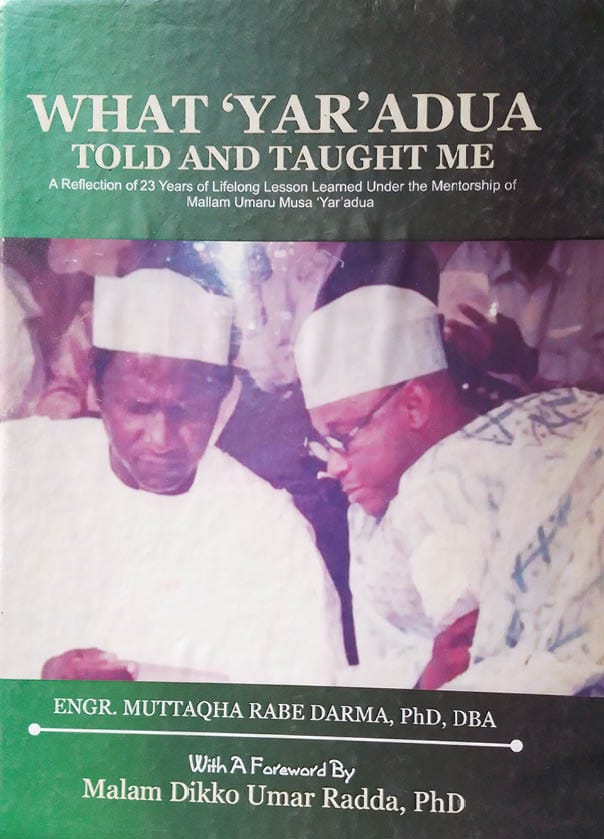What Yar’Adua Told and Taught Me

The book entitled “What Yar Adua Told and Taught Me: A Reflections on 23 Years of Lifelong Lessons Learned Under the Mentorship of Malam Umaru Musa Yar Adua” portrays the author’s journey of knowledge acquisition fromn Umaru Musa YarAdua, resembling a student’s reflection on the valuable
teachings received from a mentor. Yar’Adua is depicted as a leader with a grounded and compassionate demeanour, consistently prioritizing the welfare of the population. The book is Part one recounts the author’s first meeting and subsequent Connection with Umaru Musa YarAdua. The beginning occurred
when the author was a student. The author, a young and idealistic scholar at that time, was immediately drawn to Yar’Adua’s calmness and confidence. YarAdua’s speeches differed from the standard political rhe toric of the period, focusing on ethical governance and service to the people rather than empty promises.
This encounter sparked a mentorship that lasted for many years. The author discussed Yar’Adua’s political circle, absorbing invaluable lessons on leadership, integrity, and the importance of education.
Part two discusses the impact of Umaru Musa YarAdua on Nigerian politics. YarAdua is commemorated as a foward-thinking leader whose values and actions profoundly influenced the country. The book emphasizes his commitment to ethical leadership, transparency, and accountability in governance.
Yar’Adua’s terms as the governor of Katsina State and later as tne president of Nigeria are examined. showcasing his steaarast dedication to public service. Specific examples are provided of nis divided into three parts.
initiatives aimed at improving agriculture, education, and overall economic development. The fight against coruption emerges as a central theme in this part, with Yar’Adua’s efforts to promote clean governance serving as a source of motivation for future leaders.
Part three explores the ideologies and principles advocated by YarAdua. It analyzes his innovative problerm-solving strategies and unwavering belief in progress. YarAdua’s teachings revolve around the importance of resilience in the face of challenges, emphasizing that difficulties offer growth opportunities. He praises creativity and resourcefulness as crucial drivers of economic progress, encouraging individuals to leverage their abilities to advance society. The book also touches upon YarAdua’s unique perspective on leadership, blending ethical principles with religious convictions. His emphasis on honesty, transparency, and communal harmony highlights the significance of ethical foundations in promoting societal advancement.

